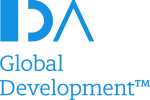Society for International Development
12 November from 17:00 to 21:00 in Ingeniørhuset at Kalvebod Brygge 31-33, 1780 Copenhagen V.
The Society for International Development [Ulandsfagligt selskab] took with more than 50 participants the temperature of Tanzania, the prospects and opportunities looking at the current situation from four angles: (1) budget support and policy dialogue; (2) social and political development trends; (3) earmarked development assistance, investments and commercial interests; and finally (4) the business environment for private Danish firms to establish and operate in the country.
The meeting was timely. On the 25th of October, the new Danish country policy for Tanzania was presented to the Development Policy Council (Udviklingspolitisk råd) and on the 14th of November, the new draft country strategy for Tanzania will be reviewed by the Foreign Policy Committee of the Danish Parliament (Folketingets Udenrigsudvalg). Thereafter, the work to prepare the new country programme (DKK 2 billion) will start in order for it to be completed before the end of 2014.
Andrew Lawson started the meeting by presenting the findings of the joint evaluation of the general budget support to Tanzania 2005/6 – 2011. These included that it had been possible to channel nearly $700 million annually through the government system with the bulk of the support being absorbed in the education and road sectors with marked outcomes. However, the evaluation had not been able to document significant reductions in poverty and inequity. Serious quality problems were found, e. g., in the education sector. The initial strong spirit of partnership between the government and the donors had declined – triggered by a corruption scandal in 2007. Mistrust had spiraled and the ownership and leadership of the policy dialogue had shifted from the government to the donors with the monitoring mechanism becoming a donor instrument to exert ‘policy’ leverage.
Ben Taylor, followed by documenting that ‘rights’, the core value of Denmark’s development assistance is under serious pressure for at least three reasons. The dominance of the ruling CCM party is challenged and in the general elections in two years, this could mean a power-shift. The rapid increase in revenues, e.g., from natural resource extraction brings to the fore how these resources are to be distributed and to whom the government is accountable. The population is rapidly growing. With the current trend, the population has increased five-fold to 250 million by the end of this century. Most of this growth will be in the rural areas and with continued lack of improvement in agricultural productivity, this leads to poor livelihood prospects, dissatisfaction and rural to urban migration.
Johnny Flentø cautioned the use of numbers, especially percentages and those concerning economic development and the government capacity to foot the bills of making a substantial bend in social development. Even a high percentage growth on little is still little. While acknowledging that, indeed there is corruption and that little or nothing is done to prosecute the offenders, the donors also carry part responsibility for the decline of trust. This includes not bringing sufficiently senior and seasoned negotiators to the table, thus increasing the risk of what could be a constructive policy dialogue degenerating into pushing external principles and setting conditionalities. He sensed that the government deliberately did not want to discuss s the ‘real’ policy challenges fearing that bringing these to the table would immediately trigger new conditionalities. The current expectation is that all the major contributors to general budget support, with the possible exception of the EU will move to some form of payment-for-results modality. Five to six major areas for applying such modality are emerging. Denmark is also likely to reduce its general budget support under the coming country programme.
Jimmy Hoffmann Hansen from Unicool presented challenges and mostly opportunities for doing business in Tanzania for a small Danish firm. The main challenges include the availability and retention of skilled labour, thus linking back to the quality of the produce of the education sector. The opportunities are plenty, including high and increasing demand for international / European standards of work, large companies are setting up operations in Tanzania and needing reliable sub- and service contractors, which have a permanent presence. While risks are higher than in Denmark, so are the margins. For companies whose possibilities for expansion in Denmark are limited, Tanzania and Africa in general might be an option to explore. Of the support Unicool has received from Danida / Ministry of Foreign Affairs, the help to identify a local business partner has been the most important.
Presenters and discussants
- Andrew Lawson, who led the recent independent joint evaluation of budget support to Tanzania 2005/06 – 2011/12.
- Ben Taylor, an analyst and blogger, focussed particularly on Tanzanian governance, media and politics. He now lives in the UK and works as a consultant with Twaweza, an East African NGO, having previously spent 12 years working in Tanzanian civil society.
- Johnny Flentø, the Danish Ambassador to Tanzania who recently wrote an article in “Altinget” on the topic
- Jimmy Hoffmann Hansen who is General Manager of Headoffice of UniCool, a Danish company that has successfully established in Tanzania
Meeting chair: Erik Blas, Chairman of the Society for International Development
See also Jesper Søe’s article from the meeting on “Ulandsnyt.dk” http://www.u-landsnyt.dk/nyhed/13-11-13/ambassad-r-ud-med-ben-kritik-af-danidas-underbeman
To see an article from Altinget please visit: http://www.altinget.dk/udvikling/artikel/rigtige-venner
